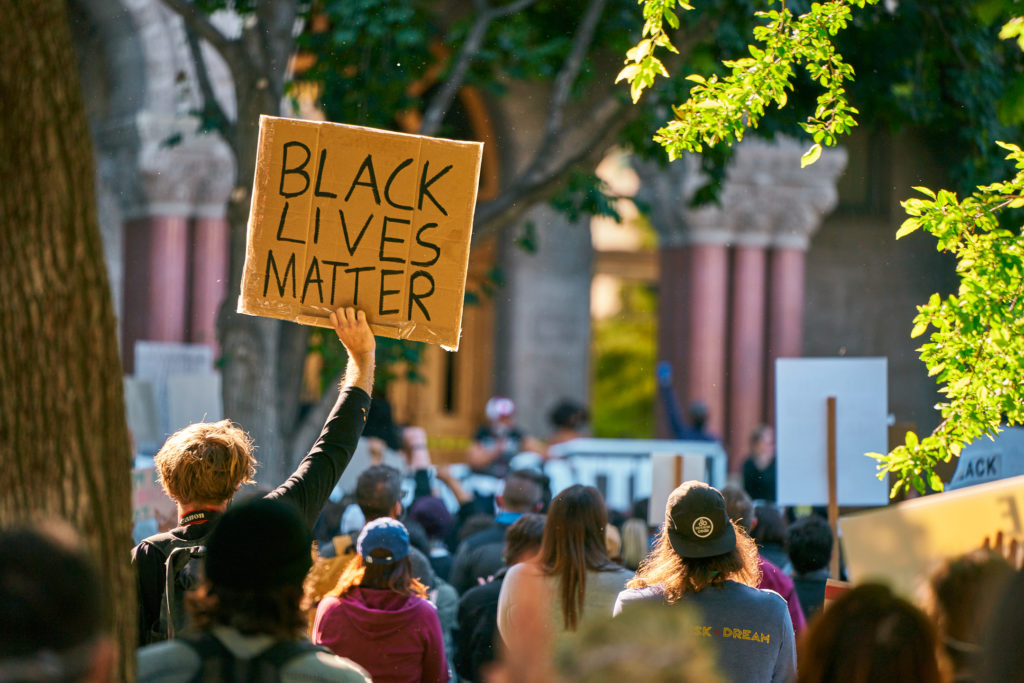
Editor’s note: Universe Campus Editor Karina Andrew has covered multiple Black Lives Matter protests in Salt Lake, Provo and Orem following George Floyd’s death.
I wasn’t prepared to march when I arrived in Salt Lake City on the evening of June 3. I hadn’t worn supportive shoes, and by the time my colleague Preston Crawley and I had made it the nearly three uphill miles from Washington Square Park to the University of Utah campus, my soles and calves were paying for it.
I’m no stranger to protests. I’ve covered my share of marches and rallies as a journalist, and I’ve even attended a few as a protester. I’m used to the minor, physical discomforts of long marches, hours of standing, bitter cold or, in the case of the Orem protest I covered June 2, sweltering heat. What I couldn’t have anticipated while preparing to cover recent Black Lives Matter protests was a slew of new, emotional discomforts.
The first new feeling was straightforward and primal: fear. I’d heard several reports of journalists being arrested or assaulted at Black Lives Matter protests across the country. There is, of course, something romantic about the idea of danger, something gritty and glamorous, but I when confronted with the possibility of real conflict for the first time in my career, I felt only trepidation. The protests in Salt Lake City had been largely peaceful, but I still spent the day reading up on what to do if you get arrested just in case.
The second feeling was more complex, harder to define. I felt it when one of the Salt Lake City protest leaders called for everyone in attendance to lie prone on the grass for an eight-minute moment of silence. I wasn’t a protester; I was media, and I didn’t know whether it was good professional practice to participate in protest activities. But, as a white woman standing in the middle of the crowd, it didn’t feel appropriate to remain standing. I lay down on the ground, the clip on my press badge digging into my hip.
I felt it again when a black woman I was interviewing broke down into tears while describing her people’s plight for equality. I thanked her for commenting, turned off my recorder and expressed my sympathy for her pain and suffering. I meant it, but the words sounded stiff and distant even to me, more like a professional courtesy than anything else.

I couldn’t put a name to the feeling until the third protest I covered when members of the BYU community enumerated the specific ways racism has impacted them on campus. The feeling was guilt — and a profound sadness — that I have profited my whole life from a system that relies on the oppression of black Americans, that I have been so ignorant to the racism all around me, and even within me.
Though saddened by the centuries of discrimination that have preceded these protests and the horrific acts of violence that have been their catalysts, I am grateful for this humbling, uncomfortable education. It has caused me to reflect upon my privilege and my role as a journalist.
More than ever, I understand why the dissemination of accurate information and the amplification of typically unheard voices matter. The free press is an essential function of a democracy; people will take what they read in the news with them to their communities and to the polls. Covering these protests has made real for me my journalistic responsibility to maintain a platform where everyone can use their voice and marginalized communities can tell their own stories.






